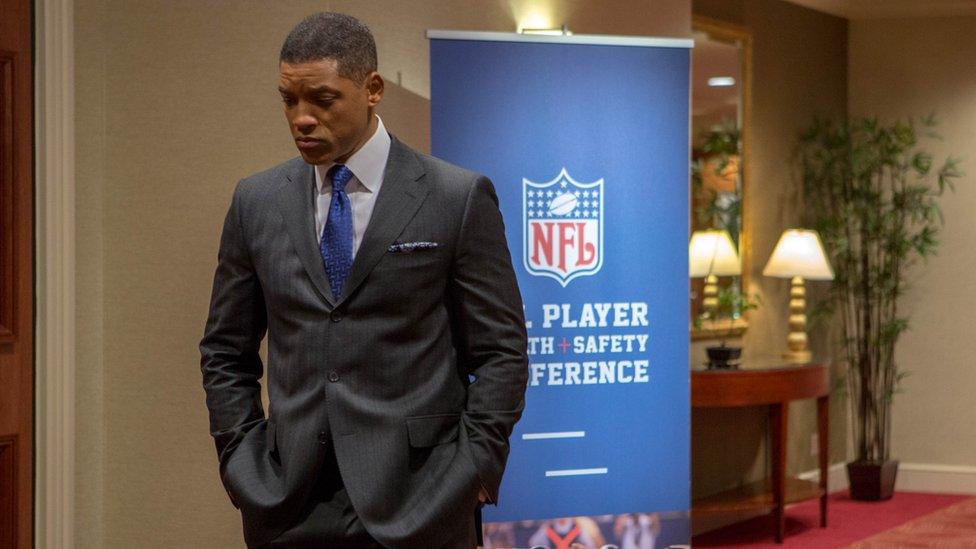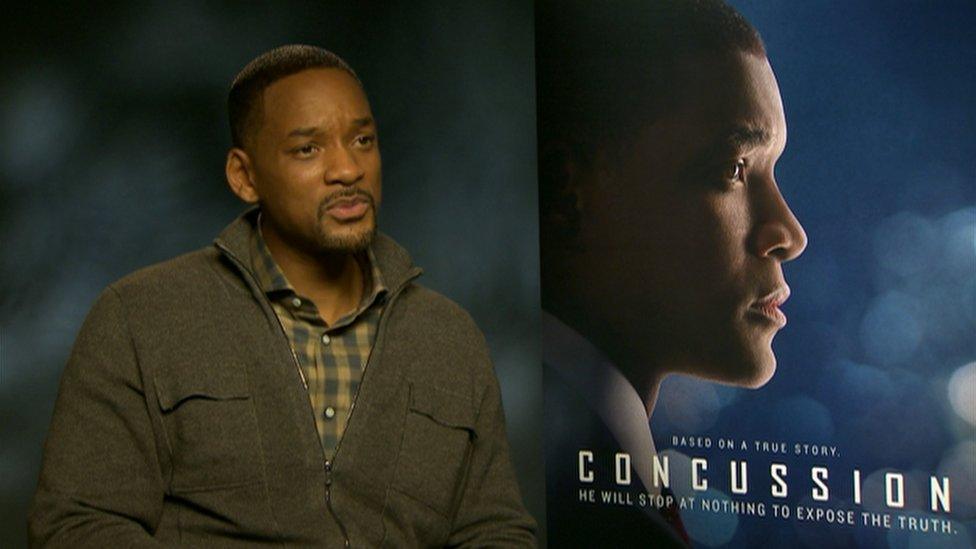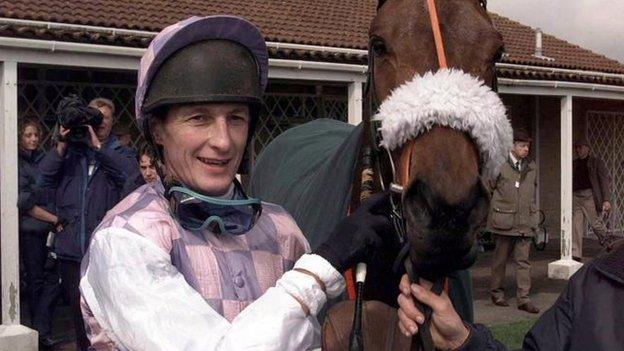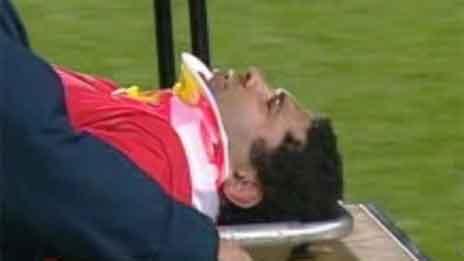Hollywood tackles concussion head-on
- Published

Will Smith stars as Dr Bennet Omalu who first discovered sport-related brain trauma in former NFL players
There is a lot we don't understand about the impact of head injuries in sport but a new Hollywood film called Concussion, starring Will Smith, aims to change that.
Over the last few years, American Football has had to face up to the fact that repeated head collisions, which are a major feature of the sport, can have serious long-term health consequences.
But for a long time, it wasn't a popular message.
Concussion tells the story of how a young Nigerian forensic pathologist Dr Bennet Omalu discovered a progressive brain disease, which he called chronic traumatic encephalopathy or CTE, in the brain of a former National Football League player.
It looked like Alzheimer's disease, but it was present in the brain of 50-year-old Mike Webster, a professional sportsman who had died prematurely.
Obvious link
Fourteen years on and 150 cases of CTE have been identified, most of them in NFL players, who have experienced depression, memory loss, behavioural changes and sometimes dementia at an unusually early age.
Like retired boxers, who were once said to be "punch drunk", the common factor was multiple concussions or blows to the head over many years.
In a recent interview with the BBC, Will Smith said he had learnt a huge amount from making the film, particularly as a parent of a son who played American football.
"We watch it, we see the hits, you see players go down... and then you applaud when they come back on again five minutes later.
"Once I had the science explained to me, it becomes so obvious that you can't imagine how you didn't see it before."

What are the symptoms of concussion?
dizziness
nausea
reduced concentration
memory problems
headaches
possible loss of consciousness

Dr Julian Bailes, co-director of the NorthShore Neurological Institute in Illinois, is portrayed by Alex Baldwin in the film. His research helped uncover CTE and he says helmets in American football are part of the problem.
"The brain floats inside the skull and although helmets are thought to be a protection against brain trauma - they're not. In fact, helmets have probably increased the risk because players go at it harder."
In the UK, concerns over CTE have thrown the spotlight on rugby - a sport which sees its fair share of player concussions.
As the Six Nations tournament kicks off, new guidelines are offering players more protection and there is undoubtedly more awareness of the dangers of repeated head injuries and the symptoms of concussion, which does not always lead to a loss of consciousness.
However, neuroscientists admit there is still a lot of work to do to find out the scale of the problem, primarily because it is so difficult to diagnose CTE in the living.
A new research project which will track the head injuries of around 50 players at Saracens Rugby Club by looking for biomarkers in their blood, urine and saliva is an important step towards this goal. Players are being asked to wear a bio-patch device which measures the effects of a head impact.

Saracens' Chris Wyles can be seen wearing the bio-patch device behind his ear against London Irish last year
John Hardy, professor of neuroscience at University College London, is working with the club to analyse the findings: "We need to follow players of contact sports to collect this systemic data. We need to find out why a repetitive injury in your 30s can lead to brain disease in your 50s."
His colleague Huw Morris, professor of clinical neuroscience at UCL, says scientists will then be able to look for the chemical changes that happen when a brain injury occurs.
"Anything happening in the brain is reflected in the blood after an impact, and the level of proteins reflects the damage to nerve cells.
"So, in theory, we can quantify the damage that has taken place."
The ultimate aim, they say, is to have a medical test which can be used during a game to identify when a serious head injury has taken place and when a player is fit to resume playing again.
They emphasise that the risk of CTE is low for people who have experienced a single episode of concussion. It is the dangers of repeated concussion injuries - which may or may not be picked up - that are of most concern.
But neuroscientists are not out to ban all contact sports - far from it, says Prof Hardy.
"We want people to enjoy sports as safely as we can advise them."
If a film about concussion can raise awareness of the symptoms of concussion and the dangers of letting it happen again and again, then Hollywood will have done a great service to brains and contact sports.
Concussion is released in UK cinemas on Friday 12 February.
- Published1 February 2016

- Published28 January 2016
- Attribution
- Published4 January 2015

- Attribution
- Published21 January 2016

- Published17 October 2013
